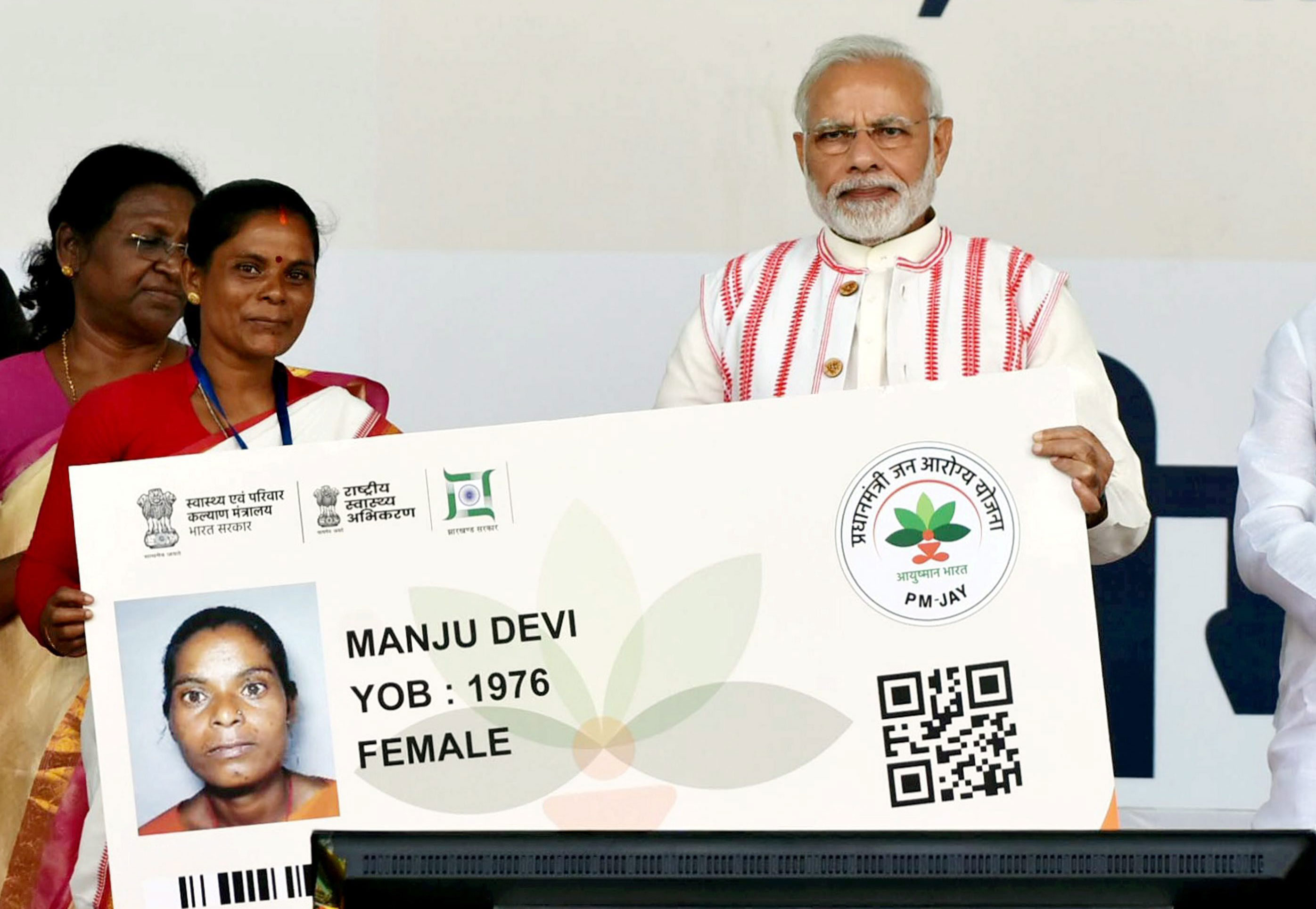The Centre on Sunday launched a national health scheme that provides hospitalisation insurance of Rs 5 lakh to 10.74 crore families amid lingering concerns among many health-care executives about its viability for private hospitals.
Prime Minister Narendra Modi, who launched the Pradhan Mantri Jan Aarogya Yojana (PM-JAY) at an event in Ranchi, tweeted that the initiative was “unparalleled in terms of scale and extent”.
PM-JAY will provide cashless hospitalisation and treatment for more than 1,350 illnesses, including cancer, heart disease, strokes and joint replacements, as well as emergency care for injuries. It will cover more than 50 crore people from poor households.
The eligible families can seek treatment at any of 13,000 government and private hospitals that are likely to be empanelled into the scheme by next week. The packages cover the costs of surgery, day-care treatments, medicines and diagnostics.
In Bengal, 436 government hospitals and 804 private hospitals have been empanelled in the scheme to serve an estimated beneficiary population of over one crore, a senior official with the programme said.
The scheme is expected to help reduce the catastrophic expenditures that families often incur on hospitalisation. Hospitals that provide services to the beneficiaries are to be reimbursed by either the insurance companies or the trusts that run the programme in the various states.
The Union health ministry plans to provide free primary-level health-care through 150,000 wellness centres that it hopes to establish over the next four years. Prime Minister Modi said the number of these wellness centres had already touched 2,300.
Health-care industry executives have hailed the scheme’s objectives, saying it will extend health insurance coverage to about 40 per cent of the country’s population from less than 25 per cent, as documented for 2016-17 in an industry report.
But they appear concerned about the infrastructure, availability of specialists, and the long-term viability for the hospitals.
“This is a laudable initiative, but finding specialists to deliver the services will be a serious challenge in some states,” said Girdhar Gyani, director-general of the Association of Healthcare Providers of India, which represents hospitals and nursing homes.
“Many empanelled hospitals may not be able to deliver all the services available under the scheme. The shortage of specialists will mean people from some states such as Bihar, Bengal and Uttar Pradesh will need to travel within or even outside the state.”
Some health-care executives have reaffirmed their concerns that the current rates of reimbursements to hospitals, as provided under the scheme, could in the long-term make it unviable for some hospitals to stay empanelled.
A costing exercise by the Indian Medical Association, India’s largest body of doctors, released in July had shown differences between the proposed PM-JAY reimbursement rates and what the IMA had calculated as the actual costs of services.
For instance, the proposed reimbursement rate for hysterectomy was Rs 20,000, but the procedure actually costs Rs 54,000, the IMA had claimed. It had claimed similar differences in the rates for hernia, Caesarean sections, total knee replacements and prostate-removal surgery.
“The jury is still out on the viability of the costs for private providers,” Suneeta Reddy, managing director of Apollo Hospitals, said in a statement on Sunday.
“Especially for large multi-speciality hospitals which incur high infrastructure and operating costs and make substantial investments in modern medical technology, in retaining best clinical talent and in securing gold standard accreditation.”
She, however, added: “But a beginning has been made.”
Some public health experts have even questioned the wisdom of an insurance-based health-care model.
A nationwide network of people’s health movements, called the Jan Swasthya Abhiyan, issued a statement on Sunday saying PM-JAY was based on a “discredited insurance model” under which public funds would be used mainly by the private sector.
It said there was “massive evidence” from some states that such insurance-based health-care schemes draw a major participation of the private sector in service delivery.
“Instead of using public funds to improve services in government hospitals, such schemes primarily help strengthen the private sector,” Sulakshana Nandi, the Abhiyan’s national co-convener, said.










